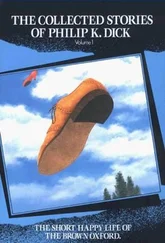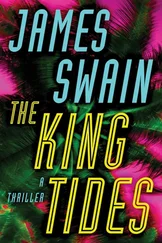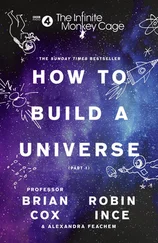“OK,” he said. “Then tell me what’s going on.”
“There’s nothing going on.”
He exhaled loudly, as if resigned. “That’s my point, Quinn,” he said. “You’re not doing anything.”
“I’m doing plenty,” she said. “I have straight A’s.”
Even in that moment he knew he was telling a half-truth, the calculus of his argument reaching no clear conclusion except the conclusion that had been clear and true for him and which he had decided must also be true for his daughter. This, even though he knew that she was not like him, that she did not need the numbers in the way that he had, the way he still did. He knew that even then. And yet he continued pushing because he also believed that he was right. Her gift, her abilities, were stronger than his own. But she had chosen to be a cheerleader of all things, a cheerleader, a choice that made so little sense to him he could not even begin to work out a response. It was as if the girl he had known and loved — the girl who was not even a girl anymore but who was a young woman — had erased the equation he had made for her, leaving only the variables or not even that, leaving only the aleph and some range of infinities that could not be counted.
And so he said what he would regret for all his days to come: “I’m disappointed,” he told her. “I’m disappointed in you.” His daughter who was a straight-A student, who was brilliant, and popular, and beautiful. Even in that moment, standing in her doorway, he could feel his heart crumbling inside the cage of his chest. And yet he was angry and frustrated and somehow believed that if he said the right combination of words he might turn her back to the course he had envisioned, even though he knew that he could never find the right words, not in this situation nor in any other.
She was quiet for a long time after that and when she spoke again her voice cracked with tears. “You don’t understand,” she said at last.
“I guess I don’t.”
She stood from the bed quickly. “I’m going over to Shawn’s,” she said and when he did not move from the doorway she looked him in the eye and said, “Get out of my way,” and of course he did so.
Those were the last words he would hear from her in person, the last not separated by atmosphere and electricity. She and Barb had come to the launch but he felt it was only because they were obligated to do so. He had seen Quinn one last time: from across a barricade since NASA rules dictated that any school-age children were potential carriers of illness and any kind of close proximity was therefore forbidden. He might have been relieved by this. If so, he now could not will himself to remember. It was late in the evening and she was standing next to her mother in the harsh artificial light. He walked along the road with the others in the crew, a line of men and women in orange launch suits, and she had waved to him and he had waved back. He could not even remember what she had been wearing. Had she called something to him? Had she yelled that she loved him? That she wished him good luck? If so, the words were lost to him. Instead, there was her wave. That was all.
When they talked later via the laptop while he was in orbit they did not mention the argument. Instead they both acted as if it had never occurred, their conversation a variety of pointless small talk. She and her mother were going on a vacation to Atlanta to visit Grandma. She had some cousins there that she was looking forward to seeing. Yes, she could take his car. Yes, cheer camp was going well. Nothing beyond such wandering and pointless topics but even these he now wished he could have recorded, wished he could play them back in the gray shadow of the days and weeks and indeed the years to come after, as if the whole of his memory had become a floating haze of detritus the outer reaches of which only tangentially obeyed him, circling, instead, some other false center, as if the brightness that had fallen from that distance would, at any moment, come rocketing in from the outer dark with its pale and luminescent shift dragging out behind it like a gown.
Over the subsequent days the field metamorphosed into something else entirely. He had only been visiting the vacant lot for four weeks but even that short time had left him with a feeling of nostalgia. Now that time was over. It had become the standard endpoint of his day and very nearly the only thing he had come to look forward to, not only Peter’s company but the ceremony of it: the telescope providing the justification for being in the dark field and the drinking and smoking providing the impetus to relax into that moment. Certainly there were other empty fields somewhere in the vicinity but it would not be the same as simply walking out the front door to the end of the cul-de-sac. The ease of it was gone and any other solution would be complicated, not only by distance but by effort. He would walk from his house to the empty lot and would sit on the sofa and would drink and would talk to his neighbor idly about whatever came to mind. But would he drive somewhere to do that? He thought it unlikely.
That evening, he stood at the edge of the cul-de-sac in the early hours of the night and stared into the darkness beyond the reach of the streetlamps. The lot was perfectly flat now and completely bare of any vegetation and it occurred to him that previous to the arrival of the tractors the field must have been leveled in preparation to build on and then the economy had crashed and all plans had been abandoned to grass and thistle and weeds. Weirdly, the sofa remained in the same location where he and Peter had first positioned it: in the relative center of the lot, the tractors flanking it like guards. Above flooded the black sky: Cassiopeia’s flattened W tilting on end as Earth rotated around its axis and Polaris unmoving as if it were the pin upon which the planet was affixed to the universe itself.
So it had begun and so would it end. He could not fathom who would have the wherewithal to actually build a house now, given the economic situation that was, according to the newspaper he occasionally read at Starbucks, the worst since the Great Depression, but there was no other explanation for it: the two tractors were there and the plot had been scraped clean and soon there would be gravel and forms for concrete and then the concrete itself and the thing would start to take shape. It was engineering elemental and basic and he could see it all in his mind even in the dark. Perhaps the entire house would be built around the sofa and it would ever remain in its geographic center.
He might have imagined the telescope there between the giant machines but instead there was only a dark shadow between the hulking silhouettes, the tractor windows reflecting the streetlight that glowed just behind him, his own shadow stretching out over the bare moonscape like an arrow pointing toward the impenetrable darkness beyond.
Sally Erler called him late the following day while he was once again at Starbucks. He thought at first that the vibrating phone indicated that Barb had found his new phone number and he very nearly did not even look at the screen, doing so only after a long pause in which he hoped to silence it by sheer force of will, as if by ignoring the sound and concentrating instead on his coffee he might somehow erase the marriage. But of course such things do not happen at Starbucks. Indeed such things do not happen at all, and at last he glanced down at the screen and then flipped the phone open and answered.
“Hello, Sally,” he said.
“Keith, it’s Sally Erler,” she said, her standard response to anything he could open with.
“Yes, I know.” He was smiling. At least there was that.
Читать дальше












